ERP Assessment Questionnaire
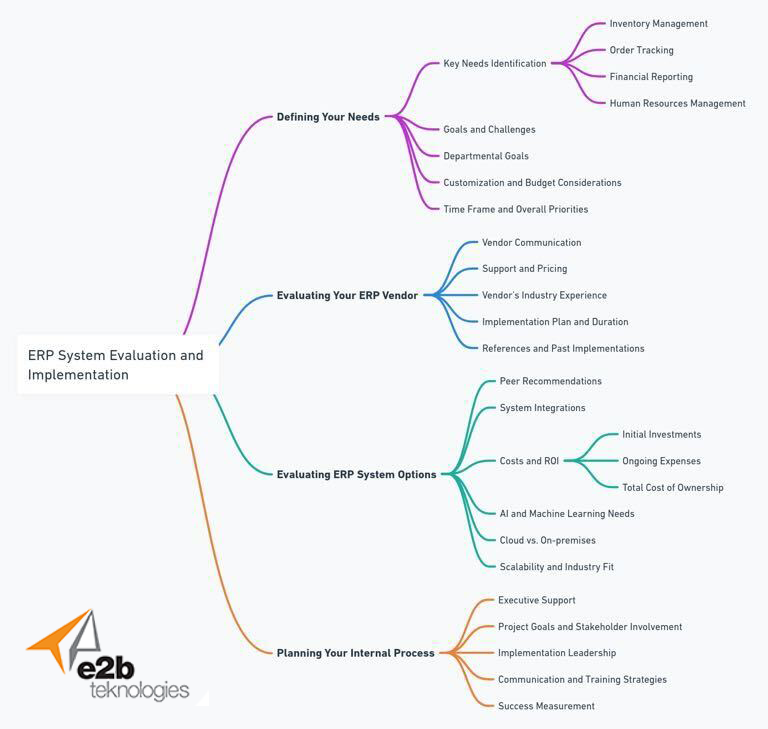
Download the full diagram to use with your team.
What is the best way to make the right ERP selection? By asking a lot of questions.
When it comes to enterprise software solutions, selection is everything. From choosing your ERP project team, evaluating your software options, choosing a vendor, and everything in between. It all comes down to the final system selection, but many other choices before that. It’s a hassle, but it’s worth it.
Table of Contents:
Planning your internal process
By taking your time to methodically evaluate all of your options and ticking off the checkboxes along the way, you will end up with a solution that will give you the best possible results.
Here are some of the most important questions you should be asking as you select your system, evaluate your vendor, and plan your ERP implementation project.
Defining your needs first
Every company has unique needs based on its industry, size, target audience, business model, etc. By defining business requirements first, you can identify key needs, ranging from inventory management and order tracking to financial reporting and human resources management.
- What are your goals for the system? What challenges do you hope to overcome with it?
- What are the goals of other departments?
- Compile all the most important goals for the company’s overall success.
- Is there a system out there that meets all of your top priorities?
- How much customization are you willing to deal with or pay for to get everything you need?
- What is the time frame for this project?
- What is the budget?
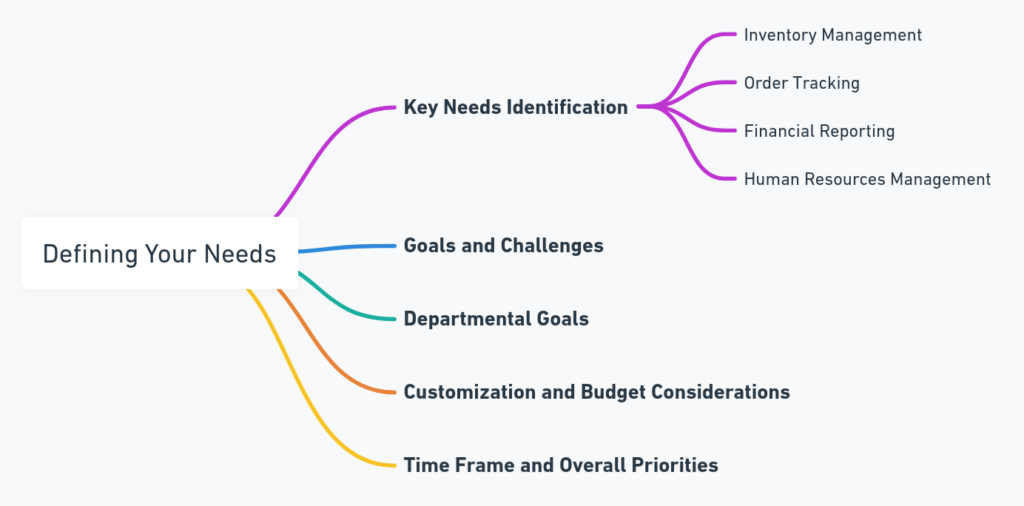
Evaluating your ERP vendor
When companies have a clear understanding of their business requirements, it makes it easier to communicate these needs to ERP vendors. This can lead to more productive conversations and demos, and ultimately, a more informed decision.
- What kind of support does your ERP vendor offer? Prices? Support plans?
- Does the vendor offer after-hours support?
- What is their response time?
- Are they easy to get in touch with?
- Can you picture yourself working with them in the future?
- Has the vendor implemented in your industry segment? How many customers do they have similar to you?
- Does the vendor have experience implementing the exact modules you will need?
- What is the vendor’s implementation plan?
- How long has the vendor been in business?
- Have you gotten references? Have you contacted them?
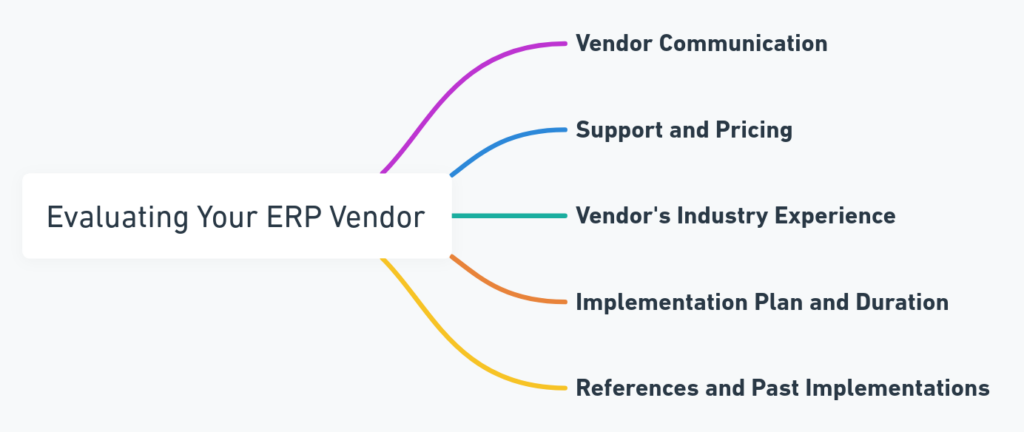
Evaluating ERP System options
Not all ERP systems are created equal, each comes with different features and caters to different kinds of businesses. By defining your business requirements first, you can choose the ERP solution that fits your specific needs and doesn’t include unnecessary features you won’t use.
- Which ERP systems do your peers use?
- What systems will the ERP system need to integrate with?
- Is there an annual maintenance cost?
- What are initial investment costs?
- Are there any ongoing expenses?
- Have you calculated the total cost of ownership (TCO)
- Have you assessed your return on investment (ROI)?
- What kind of AI and machine learning capabilities will you need?
- Have you compared cloud-based on-premises ERP options?
- Do you need mobile access and capabilities?
- Evaluate the system’s scalability and adaptability. Can it grow with you?
- Is the system tailored to your industry?
- How easy is this system? Is it similar to other systems you use? Think of your end-user- will they be able to adapt to this system quickly?
- One-time licensing fee or subscription pricing?
- Which modules will you actually use now? Which might you use in the future?
- Which features do you want to see during the demo?
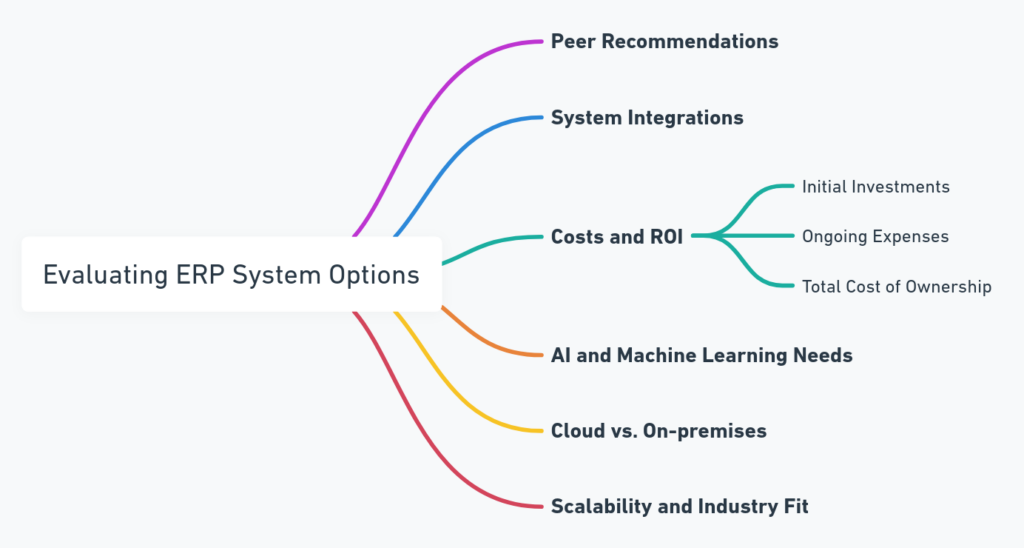
Planning your internal process
Defining business requirements first also makes the implementation process smoother. Knowing exactly what you need will help guide the configuration of the new system, the migration of data, and training users.
- Do you have executive support and commitment to the ERP project?
- Have you established clear project goals and objectives?
- Have you involved stakeholders and representatives from various departments to gather input on specific needs and requirements?
- Who will you choose to lead the implementation project?
- Which ERP implementation strategy are you going to use?
- How will you communicate with employees throughout this process to keep them in the loop?
- How will you increase adoption levels?
- What kind of training and support will your employees need?
- How will you measure the success of the system?
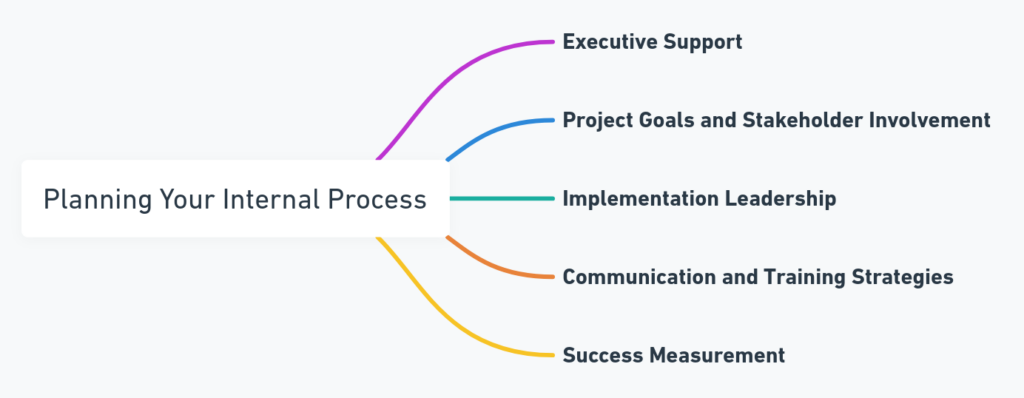
There are countless questions that need to be asked during the ERP selection process and many factors to consider. With careful planning, thorough evaluation, and a clear understanding of your organization’s objectives, you can select an ERP system that not only addresses your immediate needs but also empowers your organization to adapt and thrive in an ever-changing business environment.
By considering the above, you will be well on your way to an organized and successful ERP project.




